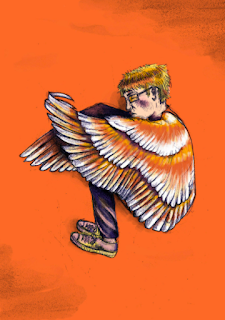"The Swan": A Fantastic Tale, or: A Todorovian Reading of Roald Dahl's Short Story - Essay

"The Swan" is a short story by Roald Dahl. It tells the story of Ernie, a teenager who receives a rifle for his birthday, and his friend Raymond. Ernie and Raymond go hunting in the countryside with the new gun. There they encounter Peter Watson, a 13-year-old whom the two boys often bully in school. Ernie and Raymond want to kill a swan sitting on her nest. Peter defends the bird, and this enrages the boys. They shoot the swan, sever her wings and tie the wings to Peter's arms. They force him to climb a tree and "fly". It is not clear whether Peter actually takes flight, or rather jumps from the tree. There are several clues in the text which can help the reader decide on an explanation. However, the answer is by no means clear-cut. This uncertainty is precisely the subject of Tzvetan Todorov's essay, "Definition du Fantastique", where he defines the fantastic as a literary genre. According to Todorov, "the [fanta...
